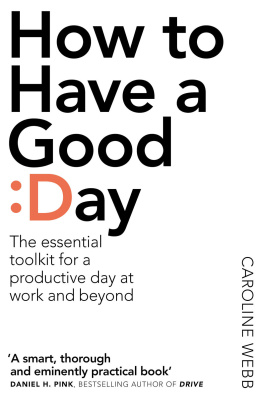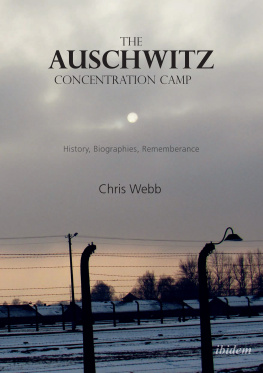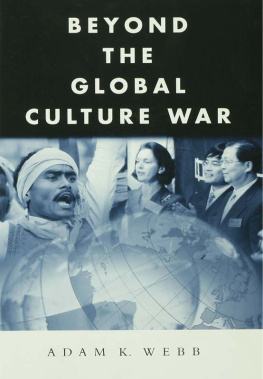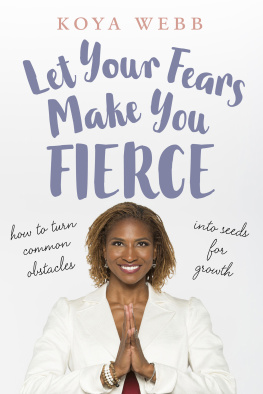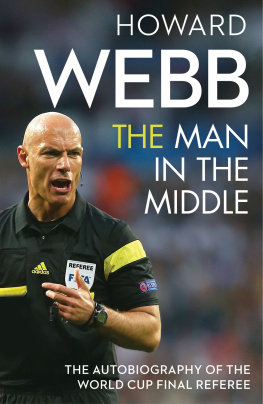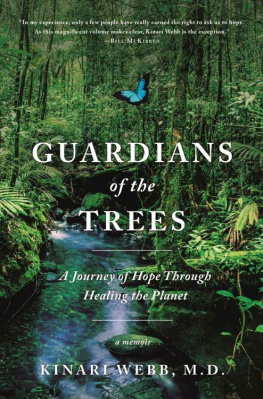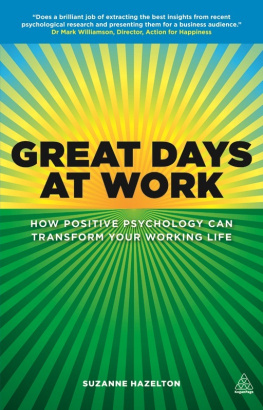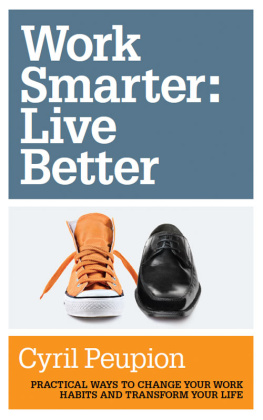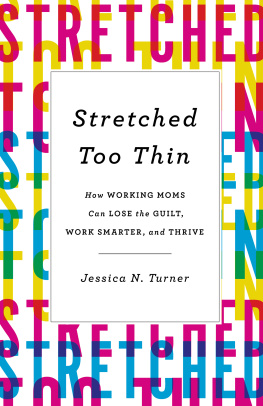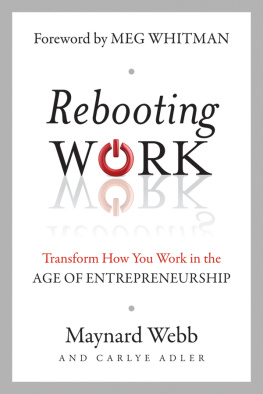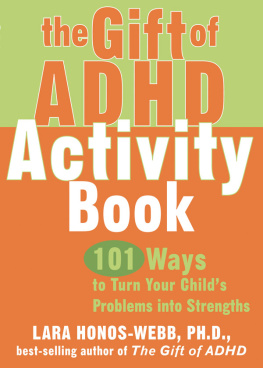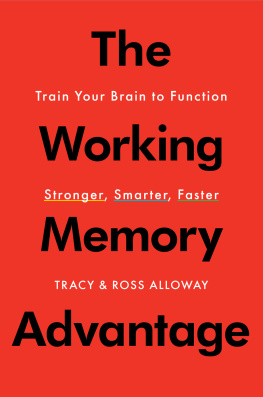Webb - How to have a good day: think bigger, work smarter and transform your working life
Here you can read online Webb - How to have a good day: think bigger, work smarter and transform your working life full text of the book (entire story) in english for free. Download pdf and epub, get meaning, cover and reviews about this ebook. City: London, year: 2016, publisher: Pan Macmillan, genre: Home and family. Description of the work, (preface) as well as reviews are available. Best literature library LitArk.com created for fans of good reading and offers a wide selection of genres:
Romance novel
Science fiction
Adventure
Detective
Science
History
Home and family
Prose
Art
Politics
Computer
Non-fiction
Religion
Business
Children
Humor
Choose a favorite category and find really read worthwhile books. Enjoy immersion in the world of imagination, feel the emotions of the characters or learn something new for yourself, make an fascinating discovery.
- Book:How to have a good day: think bigger, work smarter and transform your working life
- Author:
- Publisher:Pan Macmillan
- Genre:
- Year:2016
- City:London
- Rating:4 / 5
- Favourites:Add to favourites
- Your mark:
- 80
- 1
- 2
- 3
- 4
- 5
How to have a good day: think bigger, work smarter and transform your working life: summary, description and annotation
We offer to read an annotation, description, summary or preface (depends on what the author of the book "How to have a good day: think bigger, work smarter and transform your working life" wrote himself). If you haven't found the necessary information about the book — write in the comments, we will try to find it.
Webb: author's other books
Who wrote How to have a good day: think bigger, work smarter and transform your working life? Find out the surname, the name of the author of the book and a list of all author's works by series.
How to have a good day: think bigger, work smarter and transform your working life — read online for free the complete book (whole text) full work
Below is the text of the book, divided by pages. System saving the place of the last page read, allows you to conveniently read the book "How to have a good day: think bigger, work smarter and transform your working life" online for free, without having to search again every time where you left off. Put a bookmark, and you can go to the page where you finished reading at any time.
Font size:
Interval:
Bookmark:
PAN BOOKS
CONTENTS
INTRODUCTION
How we spend our days is, of course, how we spend our lives.
ANNIE DILLARD
Thirty years ago, I picked up my first paycheck. It wasnt a check, in factjust a small collection of bills and coins in an envelope, my wages for working as a clerk in a local supermarket. On the face of it, it wasnt a great job. It was poorly paid, and certainly not glamorous. I stacked shelves, mopped floors, and wore a company-issued uniform marked with stains from its previous owner. The manager was gruff and kept an eye on the store from a booth high above the shop floor. And yet, somehow, I liked it. There was camaraderie among the staff, and even the occasional night out together. I took pride in pleasing customers with my speed at the register. I felt useful.
Six years later, I landed a far more upscale role as a researcher at an economics institute. I had my own office and a surprisingly large number of recycling bins all to myself. But I soon felt strangely miserable. I couldnt get anyone to pay attention to my work, and I drifted. I wrote an enormous, earnest reporton economic development in post-Communist Europethat Im pretty certain nobody read. I was dealing with what wed these days call a first-world problem, and I knew I was lucky to have the job. But it became hard to summon the energy to turn up to work every day. And at that point in my life, I didnt know how to turn it around. I treaded water till my contract was up, then quietly moved on.
Over the course of my life, Ive done a lot of different types of work, some of it worse and some of it better than those two early jobs of mine. Ive been a hotel maid, receptionist, and waitress. Ive had demanding careers as an economist, a management consultant, and an executive coach. Ive worked in the private sector and the public sector; Ive been part of a huge global company and Ive launched my own tiny start-up. And through it all, I noticed the same thing over and again: that the quality of my day-to-day experience wasnt necessarily defined by my title. It was possible to have good days in bad jobs, while the more prestigious roles didnt always correlate with great contentment.
That paradox seeded my lifelong curiosity about what it takes to flourish at work, both mentally and emotionally. It became something of a personal cause as I sought to find the right way to handle the increasing intensity of my professional lifeand even more so once I noticed how my colleagues and clients often felt frustrated and worn down, making it hard for them to function at their best. In fact, survey after survey suggests that half (or more) of all employees Add to that the off days experienced by those of us who generally feel motivated and happy, and were looking at a lot of lost human potential. Yet we often talk about professional dissatisfaction as if its a casual disappointment, something to be endured until the weekend rolls around, and perhaps joked about with friends. (What happened to you today? Oh, work, you know. Ha ha. Me too. Have a drink.)
So Ive devoted much of my career to figuring out how to improve our chances of saying a cheery yes, thanks when were asked Did you have a good day? My twelve years with McKinsey & Company (the management consultancy) helped greatly in my pursuit of that goal, since it gave me the opportunity to find out what everyday life was like inside hundreds of workplaces. I specialized in projects that helped organizations shift their culture in a more positive direction, which meant I spent a lot of time studying behavior, attitudes, and processes. And whenever I could, Id ask my clients the same three questions: What does a good day look like for you? What about a bad one? What would it take to have more good days? Then, Id get to work, helping them turn their bad days into better days. Sometimes that would involve coaching individual leaders; other times, Id convene large groups to help them rethink the way they worked together. Repeatedly, I observed how fairly small changesfor example, fine-tuning the way people set priorities or handled disagreementscould result in major improvements to performance and job satisfaction. It was uplifting to see.
Throughout those years, my work leaned heavily on the growing body of behavioral science findings on what it takes for human beings to thrive. My first career was in economics, but I became deeply interested in developments in the other behavioral sciences, too, so I did some additional training in psychology and neuroscience. Then I spent countless hours reading academic articles and books (more than six hundred at last count) in the three disciplines, looking for findings that I could translate into actionable advice for my clients. And that abundance of research and practical experience is the bedrock of How to Have a Good Day.
SO WHAT IS A GOOD DAY?
Over the years, I noticed some common answers to my what is a good day questionanswers that resonated with the small delights of my humble supermarket job. First, people often talked about getting a buzz from feeling productive, and from knowing that their efforts counted toward something worthwhile. The best days also tended to involve people feeling confident that they were doing a fine job, and that they had the support they needed from others. Finally, people talked about good days leaving them feeling more energized than depleted, overall. I dont mean that the work wasnt physically or mentally tiringjust that it gave back enough enjoyment and motivation to make up for whatever it was taking out of them.
Of course, whether we get to have all that agreeable stuff on a given workday is partly the result of luck. If were handling a cranky colleague or a crisis, its obvious that were not entirely in control of the way the day feels. But my experience has led me to a heartening conclusion: we have more room to maneuver than we generally realize. The secret lies in learning some of the science explaining how the brain works, and why people behave the way they do. Less of the day seems driven by chance once we understand some of the forces that shape our choices and our emotions, and once we recognize how our thought patterns can affect everything from our perception of reality to the moods of those around us. Grasp these essentials, and it becomes far clearer how to bring the best out of ourselves and others. And that puts us in a much stronger position to create the kind of day we really want to have.
For example, an executive who shares his story later in the book talks about starting to have unexpectedly great meetings after he learned something that behavioral scientists know well: that even small challenges to a persons sense of competence will put their brain on the defensive, making it harder for them to think clearly (in turn creating something of a self-fulfilling prophecy). In his meetings, the executives take-no-prisoners personal style had inadvertently been triggering this defensive reaction in the people around him, and it was causing a lot of tension. But once he tweaked the way he expressed his views, the quality of his interactions changed within moments.
Elsewhere in the book, another seasoned professional tells us about suddenly securing new promotion opportunities after trying out new science-based techniques to sharpen her focus and self-confidence. We hear about a leader who delightedly discovered hidden talents in her team after acting on research showing that people think more creatively when given a particular type of space to think. Once an entrepreneur learns a little about the brains reward system, he finds he can say no to people while making them feel almost as good as if hed agreed to their requests. And so on.
How to Have a Good Day
Font size:
Interval:
Bookmark:
Similar books «How to have a good day: think bigger, work smarter and transform your working life»
Look at similar books to How to have a good day: think bigger, work smarter and transform your working life. We have selected literature similar in name and meaning in the hope of providing readers with more options to find new, interesting, not yet read works.
Discussion, reviews of the book How to have a good day: think bigger, work smarter and transform your working life and just readers' own opinions. Leave your comments, write what you think about the work, its meaning or the main characters. Specify what exactly you liked and what you didn't like, and why you think so.

